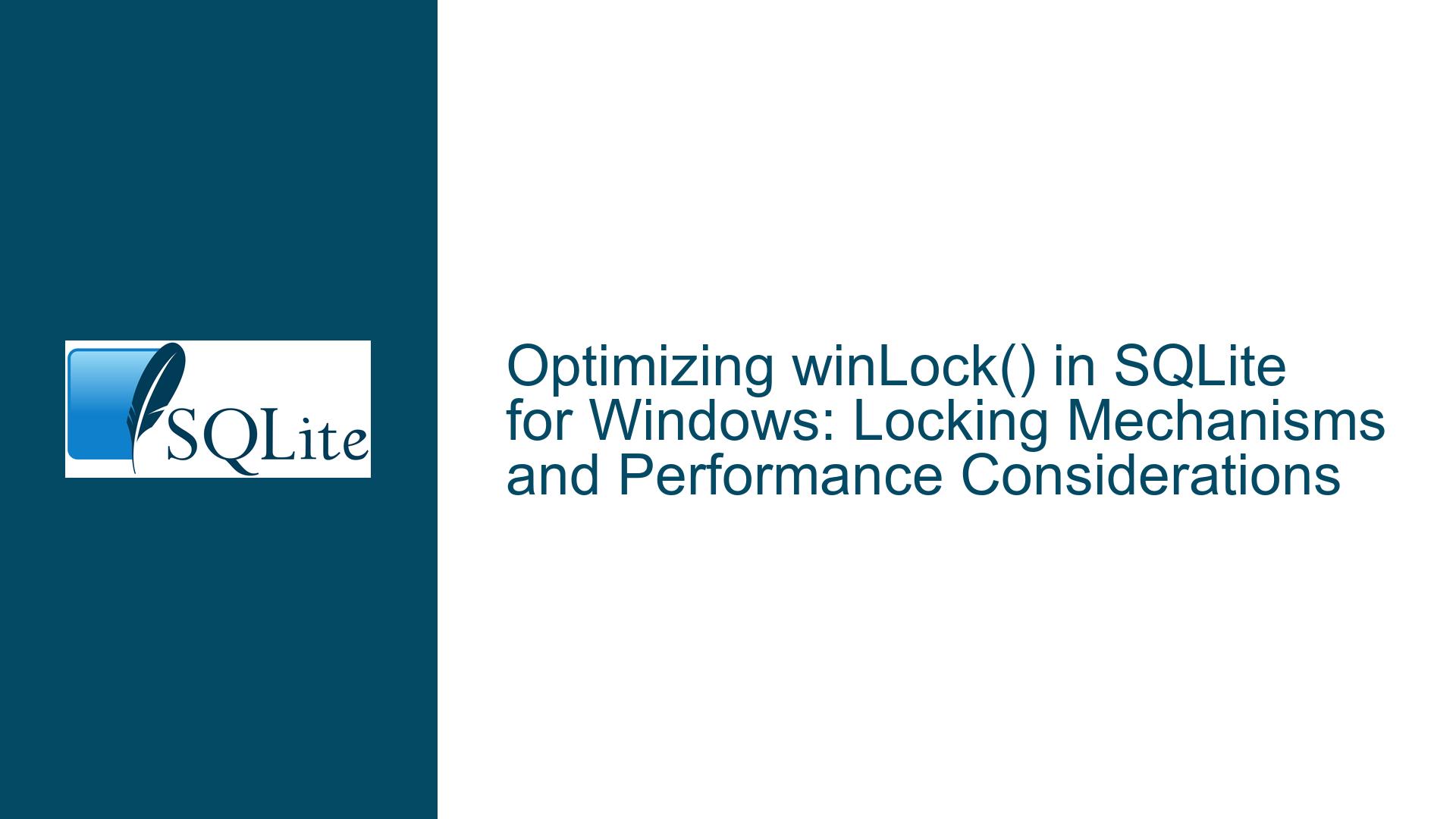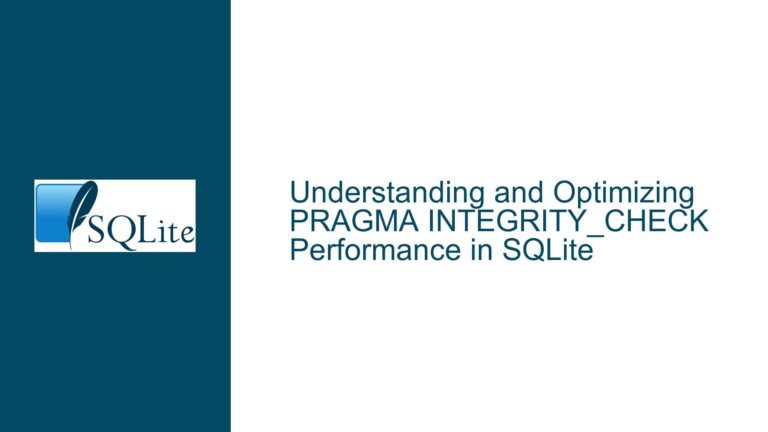Optimizing winLock() in SQLite for Windows: Locking Mechanisms and Performance Considerations
Issue Overview: Exclusive Locking in winLock() and Potential Collisions with Readers
The core issue revolves around the implementation of the winLock() function in SQLite’s os_win.c file, specifically around how locks are acquired during state transitions. The function is responsible for managing file locks on Windows systems, ensuring proper synchronization between multiple processes accessing the same SQLite database. The problem arises in the handling of lock transitions, particularly when moving from NO_LOCK to SHARED_LOCK and from RESERVED_LOCK to EXCLUSIVE_LOCK.
In the current implementation, an exclusive lock is acquired on the pending byte during the NO_LOCK to SHARED_LOCK transition. This is problematic because acquiring an exclusive lock in this scenario is unnecessary and can lead to collisions with other readers. The pending byte is a special byte in the database file used to manage lock contention, and its misuse can degrade performance and cause unnecessary blocking.
The issue is further compounded by redundant comparisons within the winLock() function, such as the duplicate checks on lines 3330 and 3337. These redundancies not only clutter the code but also introduce minor performance overheads. Additionally, the discussion highlights the outdated support for Windows 95, which is still embedded in the codebase through the osIsNT() function. This legacy code adds unnecessary complexity and slows down operations for the vast majority of users who are on modern Windows systems.
Possible Causes: Misuse of Locking Flags and Legacy Code Overhead
The primary cause of the issue lies in the misuse of locking flags during the NO_LOCK to SHARED_LOCK transition. In Unix systems, SQLite correctly uses shared locking (F_RDLCK) for this transition, as seen in the os_unix.c file. However, the Windows implementation incorrectly uses exclusive locking, which can lead to contention and performance degradation. This discrepancy suggests a lack of parity between the Unix and Windows implementations, likely due to historical differences in how file locking is handled across operating systems.
Another contributing factor is the presence of redundant comparisons within the winLock() function. These redundancies are likely remnants of earlier iterations of the code or debugging artifacts that were never cleaned up. While they do not directly cause functional issues, they add unnecessary complexity and can make the code harder to maintain and optimize.
The legacy support for Windows 95, though well-intentioned, is another significant cause of inefficiency. The osIsNT() function, which checks whether the operating system is Windows NT or later, is used to determine the appropriate locking mechanism. However, this check is no longer relevant for the vast majority of users, as Windows 95 is obsolete. The continued inclusion of this check adds unnecessary overhead and complicates the codebase.
Troubleshooting Steps, Solutions & Fixes: Aligning Locking Mechanisms and Removing Legacy Code
To address the issue, the first step is to align the locking mechanisms in the Windows implementation with those in the Unix implementation. Specifically, the NO_LOCK to SHARED_LOCK transition should use shared locking (SQLITE_LOCKFILEEX_FLAGS) instead of exclusive locking. This change will prevent unnecessary collisions with other readers and improve overall performance. The relevant code in os_win.c should be modified to mirror the logic in os_unix.c, ensuring consistency across platforms.
Next, the redundant comparisons in the winLock() function should be removed. This involves identifying and eliminating duplicate checks, such as those on lines 3330 and 3337. Cleaning up these redundancies will streamline the code and reduce the risk of introducing bugs during future modifications. It will also make the function easier to understand and maintain.
Finally, the legacy support for Windows 95 should be deprecated. This can be achieved by introducing a compiler option, similar to the one used for Windows CE, to exclude the obsolete code from modern builds. By default, the code should assume a modern Windows environment, eliminating the need for the osIsNT() check. This change will simplify the codebase and improve performance for the vast majority of users.
In conclusion, the issues with winLock() in SQLite’s Windows implementation stem from a combination of misaligned locking mechanisms, redundant code, and outdated legacy support. By aligning the locking flags with the Unix implementation, removing redundant comparisons, and deprecating legacy code, the performance and maintainability of the winLock() function can be significantly improved. These changes will ensure that SQLite continues to perform efficiently on modern Windows systems while maintaining compatibility with existing databases.






